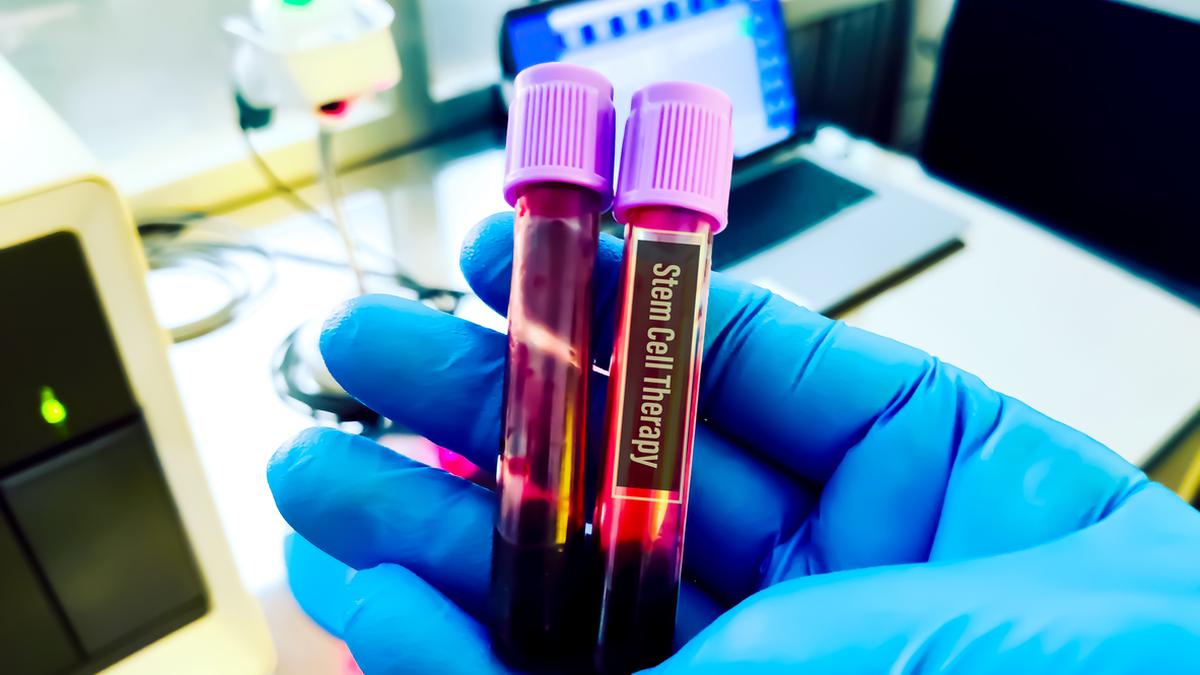Now Reading: Hyderabad Startup Achieves Milestone with Stem Cell Therapy for Liver Failure
-
01
Hyderabad Startup Achieves Milestone with Stem Cell Therapy for Liver Failure
Hyderabad Startup Achieves Milestone with Stem Cell Therapy for Liver Failure

Rapid Summary
- Innovation Breakthrough: Tulsi Therapeutics, a biotech startup incubated at ASPIRE-BioNEST, University of Hyderabad (UoH), has successfully completed animal trials for a novel stem cell-exosome combination therapy, “Tulsi-28X,” targeting chronic liver failure.
- Global Health Concern: Chronic liver failure contributes to 20% of global liver-related deaths; currently, transplantation is the only effective treatment available.
- Mechanism: Tulsi-28X stimulates regenerative proteins and growth factors to repair diseased liver tissues. The preclinical results showed complete reversal of liver fibrosis in treated animals with zero deaths compared to partial recovery and higher mortality in the control group.
- Collaborative Effort: Research teams included experts from Indiana University (USA) and PGIMER (chandigarh).
- Indian Progress: Although conceptualized in the United States,the innovation was developed entirely in India after three years of research at UoH’s ASPIRE-BioNEST platform.
- Next Steps: human clinical trials will be conducted in collaboration with Nizam’s Institute of Medical Sciences (NIMS). Results were presented at AASLD Liver Conference 2024 and accepted for publication in the Journal of Regenerative Medicine.
- Significance for Biotech Industry: Tulsi Therapeutics could pioneer dual stem cell-exosome biologics globally. ASPIRE-BioNEST continues advancing deep-tech startups supported by BIRAC’s funding infrastructure.
Indian Opinion Analysis
Tulsi Therapeutics’ breakthrough showcases India’s capability to led global biotechnology advancements. With chronic liver disease being a major public health challenge worldwide-and particularly pressing within India-this innovation marks a significant step toward reducing dependency on organ transplants as sole treatments.
The success underscores how platforms like ASPIRE-BioNEST are vital for nurturing high-impact bioscience ventures domestically while enabling collaborations between Indian institutions and global expertise. However, transitioning this therapy from preclinical results to human trials will require stringent regulatory approvals alongside continued scientific rigor-highlighting both possibility and obligation for India’s biotech ecosystem.
The rapid growth evidenced through projects like Tulsi Therapeutics also reflects life sciences’ expanding reliance on regenerative medicine globally. Shoudl this milestone pass forthcoming clinical hurdles effectively, it could solidify India’s position as an innovator within next-generation therapeutics while addressing critical healthcare needs domestically.
Read more: Source
























